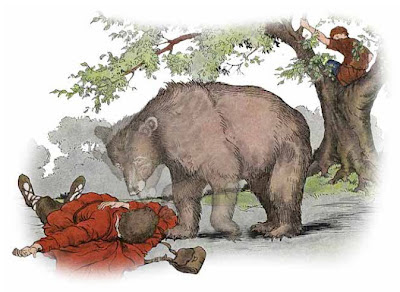High in the Himalayan
mountains lived a wise old man.
Periodically, he
ventured down into the local village to entertain the villagers with his
special knowledge and talents. One of his skills was to “psychically” tell the
villagers the contents in their pockets, boxes, or minds.
A few young boys from
the village decided to play a joke on the wise old man and discredit his
special abilities.
One boy came up with
the idea to capture a bird and hide it in his hands. He knew of course, the
wise old man would know the object in his hands was a bird.
The boy devised a
plan.
Knowing the wise old
man would correctly state the object in his hands was a bird, the boy would ask
the old man if the bird was dead or alive. If the wise man said the bird was
alive, the boy would crush the bird in his hands, so that when he opened his
hands the bird would be dead; if the wise man said the bird was dead, the boy
would open his hands and let the bird fly free. So no matter what the old man
said, the boy would prove the old man a fraud.
The following week,
the wise old man came down from the mountain into the village. The boy quickly
caught a bird and cupping it out of sight in his hands, walked up to the wise
old man and asked, ” Old man, old man, what is it that I have in my hands?”
The wise old man said,
“You have a bird.” and he was right.
The boy then asked,
“Old man, old man tell me, is the bird alive or is it dead?”
The wise old man
looked at the boy and said, “The bird is as you choose it.”
And so it is in
everything we do. The power, your direction and your destiny are literally in
your hands and the hands of those you lead and/or serve with. Which path are
you going to take? It’s up to you, it’s always up to you.
Moral:
Teamwork is a choice that
every member of the team makes, including the leader.

















